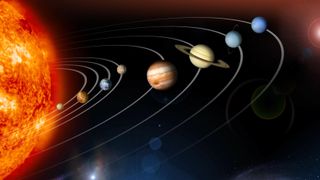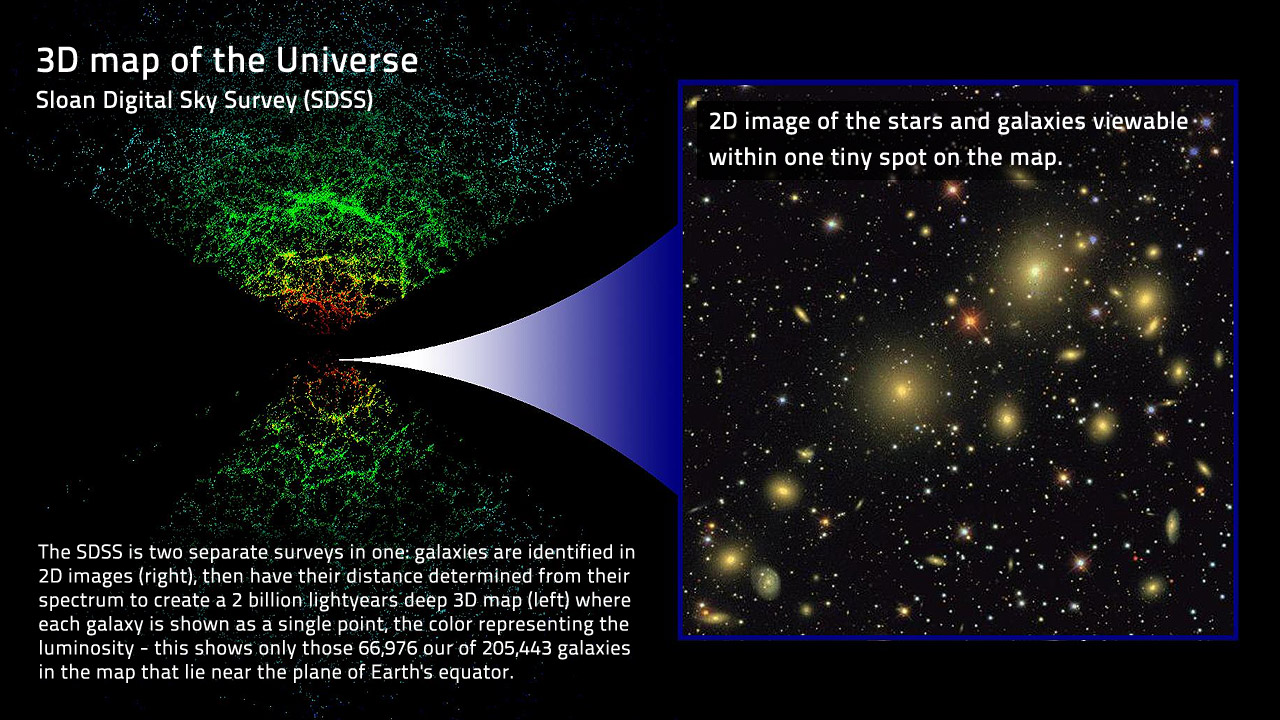Gravity is one of the most important forces in the universe. It is responsible for the formation of the solar system and the planets within it. Gravity is also responsible for the orbits of the planets around the sun.
Without gravity, the solar system would not exist.
The solar system was formed over 4.6 billion years ago. At that time, the universe was filled with a dense cloud of gas and dust.
This cloud began to collapse in on itself due to the force of gravity. As it collapsed, the cloud began to spin. The spinning cloud flattened out into a disk shape.
The center of the disk became the sun. The planets formed from the remaining material in the disk.
The force of gravity also determines the orbits of the planets around the sun.
The sun has a much stronger gravity than the planets. The planets orbit the sun because they are constantly being pulled towards it by gravity. If the sun were to suddenly disappear, the planets would continue to orbit around the empty space where it once was.
Gravity is an important force in the universe. It is responsible for the formation of the solar system and the planets within it. Gravity is also responsible for the orbits of the planets around the sun.
Without gravity, the solar system would not exist.
Gravity is one of the most important forces in the universe. It’s what keeps us stuck to the ground and what keeps the planets in orbit around the sun. Without gravity, the solar system would be a very different place.
The solar system formed when a huge cloud of gas and dust collapsed in on itself. Gravity was the force that held everything together and allowed the solar system to form.
As the cloud collapsed, it began to spin.
This spinning caused the cloud to flatten out into a disk. The center of the disk became the sun and the material around the edge began to form the planets and other bodies in the solar system.
Gravity also plays a role in the orbits of the planets.
It’s what keeps them moving in a consistent path around the sun. The stronger the gravity, the tighter the orbit.
The gravity of the sun also keeps the planets from flying off into space.
If it weren’t for gravity, the planets would eventually escape the solar system entirely.
Gravity is a powerful force that shapes the universe. It’s responsible for the formation of the solar system and it plays a role in the orbits of the planets.
Without gravity, the solar system would be a very different place.

Credit: www.space.com
What Role Did Gravity Play in the Formation of the Solar System
In the beginning, there was only a swirling mass of gas and dust. Then, something happened to cause a small part of this mass to collapse in on itself. As it collapsed, it began to spin faster and faster.
The force of the collapse caused the center of the mass to heat up, and as it heated up, it began to form a star. The star’s gravity began to pull the rest of the mass in towards it, and as it did, the star’s gravity caused the mass to flatten out into a disk. The disk of gas and dust began to form planets, and as the planets formed, they began to orbit the star.
The force of gravity played a very important role in the formation of the solar system. Without gravity, the solar system would not exist.
How Did Gravity Affect the Formation of the Solar System
In the early stages of the solar system’s formation, the sun was surrounded by a disk of gas and dust. Gravity caused the disk to collapse in on itself, with the matter in the center gravitationally attracting the matter on the outside. This collapse caused the sun to heat up, and as the disk continued to collapse, it began to spin.
The spinning caused the disk to flatten out into a disk shape, with the sun at the center.
As the disk continued to collapse, the particles within it began to clump together. These clumps were attracted to each other by their mutual gravity, and over time they grew larger and larger.
Eventually, they became so large that their gravity was strong enough to hold on to gas and dust, and they became protoplanets.
The gravity of the protoplanets caused them to orbit the sun, and as they did so they began to sweep up any remaining dust and gas in their path. This process continued until the protoplanets had cleared out their orbits, and the solar system was complete.
Gravity was thus essential in the formation of the solar system. It caused the disk of gas and dust to collapse in on itself, and it caused the protoplanets to orbit the sun. Without gravity, the solar system would not exist.
What Role Did Gravity Play in the Formation of Planets
Most astrophysicists agree that planets form through accretion, a process in which dust and gas in a young protoplanetary disk coalesce into larger and larger bodies. But how does accretion begin? One popular theory holds that a nearby star gravitationally perturbs a dense clump of gas and dust, causing it to collapse and form a protoplanet.
Computer simulations of accreting protoplanetary disks show that gravity plays a key role in the formation of planets. In fact, gravity is the dominant force in the accretion process. As a protoplanetary disk collapses under its own gravity, clumps of dust and gas begin to form.
These clumps then grow through accretion, eventually forming planets.
Gravity also plays a role in the long-term evolution of planets. For example, it determines the orbital periods of planets and controls the tidal interactions between them.
It also governs the movements of planets within a protoplanetary disk, helping to shape the final architecture of planetary systems.
In summary, gravity is a fundamental force in the formation and evolution of planets. Without it, planets would not form and the universe as we know it would not exist.
What Role Did Gravity Play in the Formation of Stars
When a large cloud of gas and dust begins to collapse under its own gravity, the process of star formation begins. As the cloud collapses, it begins to spin faster and faster. The spinning causes the cloud to flatten out into a disc shape, with most of the mass concentrated in the middle.
As the cloud continues to collapse, the material at the center becomes so dense and hot that nuclear fusion begins. This is what makes a star shine.
The gravity of a star also plays an important role in its evolution.
The more massive a star is, the more gravity it has. This means that more massive stars burn their fuel much faster than less massive stars. As a result, more massive stars have shorter lifetimes, and they often end their lives in a much more spectacular way than less massive stars.
How Did Gravity Affect the Formation of Galaxies
In the early universe, there were no galaxies. Instead, there were only small clumps of matter that were spread evenly throughout space. These clumps were pulled together by the force of gravity.
As they got closer together, they became more massive. This made gravity even stronger, and the clumps got even closer together. Eventually, they became so massive and so close together that they collapsed in on themselves, forming the first galaxies.
Over time, gravity caused these galaxies to grow larger and larger. As they did, they attracted more and more matter. This matter came from the gas and dust that was spread throughout the universe.
Gravity pulled this matter into the galaxies, making them even larger.
Today, we see galaxies of all different sizes. Some, like our own Milky Way, are huge.
Others are much smaller. But they all formed in the same way, thanks to the force of gravity.
Formation of the Solar System | The Dr. Binocs Show | Learn Videos For Kids
Which of the Following Describes a Role of Gravity in the Formation of Our Solar System?
In our solar system, gravity plays a vital role in the formation and evolution of planets and moons. Gravitational forces shape and pull planets and moons into orbit around a star. Additionally, gravity plays a role in the formation of galaxies, stars, and the universe as a whole.
Without gravity, the universe would be a very different place.
Which of the Following Describes a Role of Gravity in the Early Stages of the Solar System?
Most people are familiar with the role of gravity in the solar system. Gravity is what keeps the planets orbiting around the sun. It is also what keeps the moon orbiting around Earth.
But what role did gravity play in the early stages of the solar system?
Gravity played a very important role in the early stages of the solar system. It was gravity that caused the dust and gas to collapse to form the sun and planets.
Gravity also caused the planets to form orbiting around the sun.
without gravity, the solar system would not exist as we know it today. It is an essential part of how our solar system works.
Which of the Following is a Result of Gravitational Forces in the Solar System?
There are many factors that contribute to the gravitational forces in the solar system. The sun, planets, and moons all have an impact on the gravitational pull that is exerted on objects in space. The size of the object, its mass, and its distance from other objects all play a role in the amount of gravity that is exerted.
The gravitational force between two objects is directly proportional to the mass of the objects and inversely proportional to the square of the distance between them. This means that the more massive an object is, the more gravity it has. Additionally, the closer two objects are to each other, the stronger the gravitational force between them will be.
The sun is the largest object in the solar system and exerts the most gravitational force. The planets orbit the sun because of the sun’s gravity. The moons orbit the planets because of the gravity of the planets.
The gravitational force of the sun keeps the planets in their orbits and the gravitational force of the planets keep the moons in their orbits.
The gravitational force also affects the way that objects move through space. Objects in space are constantly being pulled towards the sun by the sun’s gravity.
This is why planets and moons orbit the sun. They are constantly being pulled towards the sun but never quite reach it.
The gravitational force also affects the way that objects move through space.
Objects in space are constantly being pulled towards the sun by the sun’s gravity. This is why planets and moons orbit the sun. They are constantly being pulled towards the sun but never quite reach it.
The gravitational force also affects the way that objects move through space. Objects in space are constantly being pulled towards the sun by the sun’s gravity. This is why planets and moons orbit the sun. They are constantly being pulled towards the sun but never quite reach it.
Solar Systems are Formed from Disks of _______ by the Force of _______.
Most solar systems are thought to form from a disk of dust and gas that surrounds a young star. The force of gravity pulls the material in the disk together to form planets, moons, and asteroids.
Conclusion
Gravity played a huge role in the formation of the solar system. It was responsible for the formation of the sun, the planets, and the moons. Gravity also caused the planets to orbit the sun.
